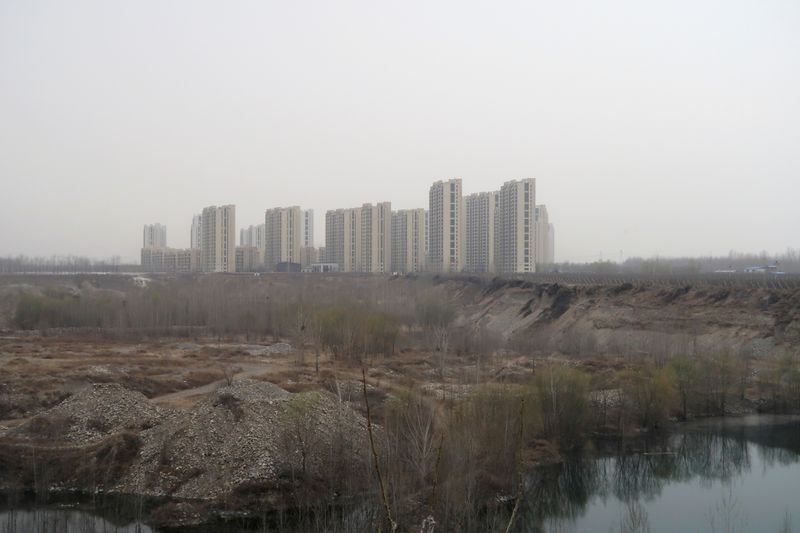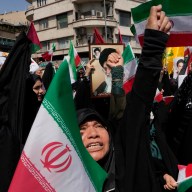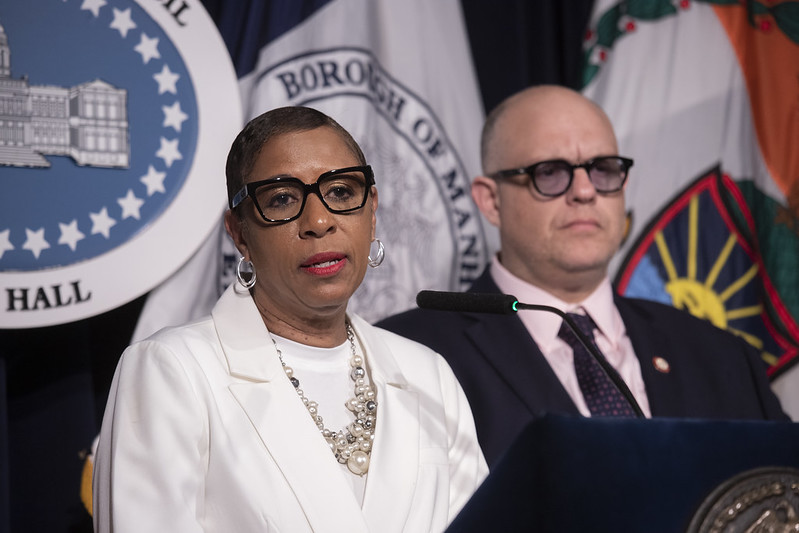HONG KONG (Reuters) – Chinese regulators want property developers to disclose details of rapidly growing commercial paper issuance in their monthly reports, said three sources, as part of Beijing’s move to rein in ballooning debt in the property sector as the economy slows.
Real estate developers in the world’s second largest economy are major issuers in the commercial paper market, which saw new issues worth 3.6 trillion yuan ($556.00 billion) in 2020, up 20% from 2019.
Commercial paper, which is not counted as interest-bearing debt, is commonly used in the property sector as a payable that promises construction suppliers a payment on a future fixed date, usually within one year, though the suppliers sometimes sell the paper before maturity at a small discount in the secondary market.
Property developers, however, have increasingly used commercial paper to raise funds.
The regulators push for greater oversight comes amid rising late payments for these papers by firms including like China Evergrande Group, the most indebted developer with $88 billion in borrowings, China Fortune Land and Sichuan Languang Development.
It also comes as Beijing looks to tackle unbridled borrowing by developers outside the usual financing channels like bank loans and bond issuance to curb financial risk.
Regulators want more transparency, what developers are using the paper for and whether they are fully disclosing how much of these bills they hold, said a developer, who is aware of the discussion on impending requirement to disclose monthly all commercial paper that had still to mature.
Because he was not authorised to speak to media, the developer declined to be named, as did another developer and financial services source who were also aware of the new requirement.
People’s Bank of China did not respond to request for comment.
China’s property market has rebounded quickly from the COVID-19 shock, raising concerns about financial risks and overheating. Late last year, authorities began stepping up curbs on the sector, including restricting debt accumulation.
Twelve major developers, including Evergrande, have to disclose their debt position from channels including banks, debt markets and off-balance sheet projects every month to the regulators in a pilot scheme put in place by PBOC and housing authorities late last year, but that had not covered commercial paper.
LEGAL LOOPHOLE
Some developers, brokers said, issue the paper to associates and even shell firms, or issue multiple papers to a supplier against the same invoice, who then sell them directly in the secondary market and hand the cash back to the issuer.
Many local financial institutions are also holders of these commercial papers, and some of them package the instrument into trust and wealth management products to sell to retail investors, industry officials said.
“It’s a legal loophole,” said Xinpeng Zhu, a lawyer at Shanghai Rongying Law Firm who is representing commercial paper holders including fund and wealth management companies, banks, brokerages and retail investors in late payment cases.
Some plaintiffs had packaged commercial paper in wealth management products to sell to retail investors, he said.
Evergrande is the biggest issuer of commercial papers. Its flagship unit, Evergrande Real Estate Group, had 205.7 billion yuan ($32 billion) worth of commercial paper at the end of 2020, 24% higher than 2019 and 390% higher than 2015, filings showed.
The actual figure of outstanding paper for Hong Kong-listed parent could be much higher, analysts said, as not all the instruments are consolidated into the holding company’s financials, and its other units also issue commercial paper.
Evergrande told Reuters only an “extremely small” amount of its paper was not repaid on time. It said it did not issue any commercial paper to associates for financing purposes and that it was unaware of its papers being packaged into wealth management products.
Despite Evergrande saying last month that it was arranging payments for some of its project companies’ commercial paper that had not been repaid on time, the news triggered a selloff in its equities and bonds.
Evergrande’s onshore and offshore bonds maturing in the next two years were trading at a yield of 35% and 23% respectively.
According to commercial paper marketplace Weipiaobao website, the commercial paper of Evergrande Yuanlin, a unit that designs and builds gardens for the parent firm’s projects, was selling on Tuesday at 36% below its issue value. The commercial paper for other developers was on averaged selling at 20% below the issue value.
($1 = 6.4748 Chinese yuan renminbi)
(Editing by Sumeet Chatterjee & Simon Cameron-Moore)



















